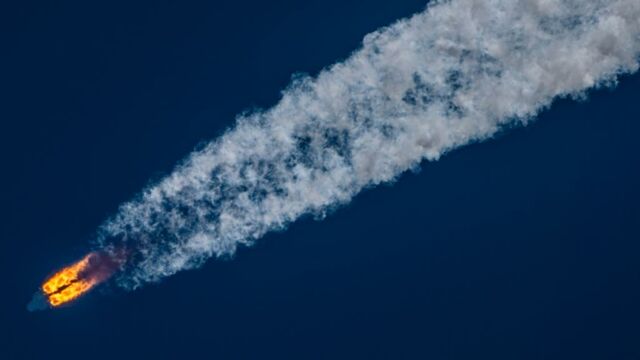A huge rocket is plummeting to Earth, scientists can’t tell where it’ll land

A huge rocket belonging to China is plummeting its way to Earth in an uncontrolled fall. Scientists cannot predict where it’ll land.
On Sunday, July 24, China launched the 23-ton Long March 5B rocket as reported by CNN. this rocket was carrying the Wentian laboratory module. The mission was a success, the module docked with China’s orbital outpost.
Discover our latest podcast
Now that it has completed its mission it is now making its way back to Earth. The only problem is that it is in an uncontrolled fall. But what does this mean exactly?
More under this adMore under this adAn uncontrolled fall
The Chinese rocket has successfully completed its mission and is falling back to Earth. The US Space Command believes that the rocket may reach Earthsometime early next week, but is unable to provide an exact date and location.
According to CNN, this is the third time that China has been accused of not properly handling space debris and allowing uncontrolled descents to Earth.
More under this adMore under this adMichael Byers, a professor at the University of British Columbia said:
It's a 20-tonne metal object. Although it will break up as it enters the atmosphere, numerous pieces -- some of them quite large -- will reach the surface.

Is this a danger to us?
Don’t worry, it isn’t going to be a major issue. Byers explained that ‘space debris poses an extremely minimal risk to humans’. However, it can still cause damage if large pieces of debris fall in inhabited areas.
That being said, Byers also explained that there is an increase in space junk and what used to be very small chances of space junk being a danger are slowly increasing.
More under this adMore under this adIndeed, according to research published in the Nature Astronomy Journal, rocket bodies are approximately three times more likely to land at the latitudes of Jakarta, Dhaka and Lagos than those of New York, Beijing or Moscow.
Read more:
⋙ NASA’s Mars rover found a mysterious ‘noodle’ object
⋙ Researchers make remarkable discovery of alcohol in space
⋙ NASA finally reveals damage done to James Webb Telescope after being hit by meteoroids